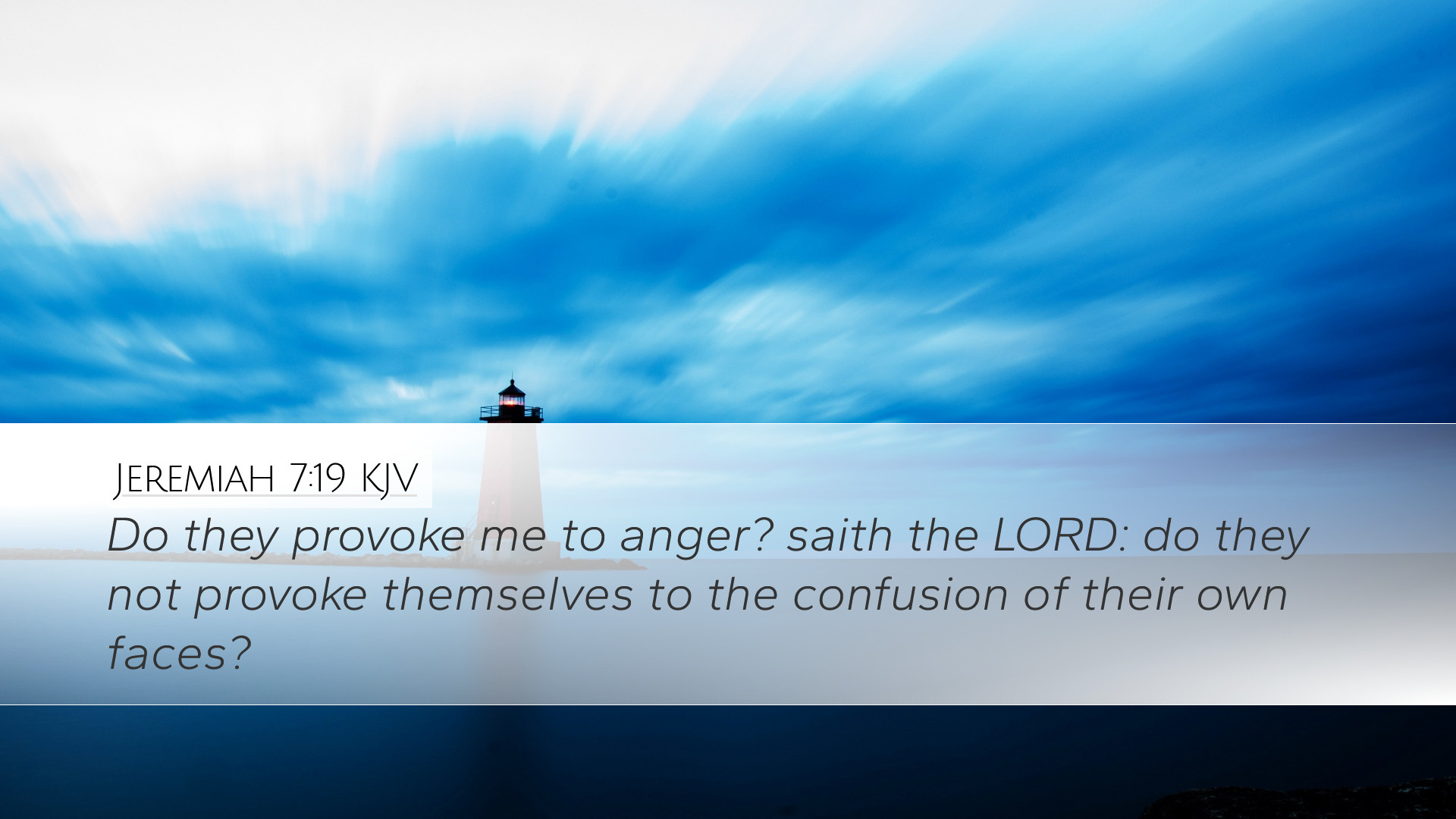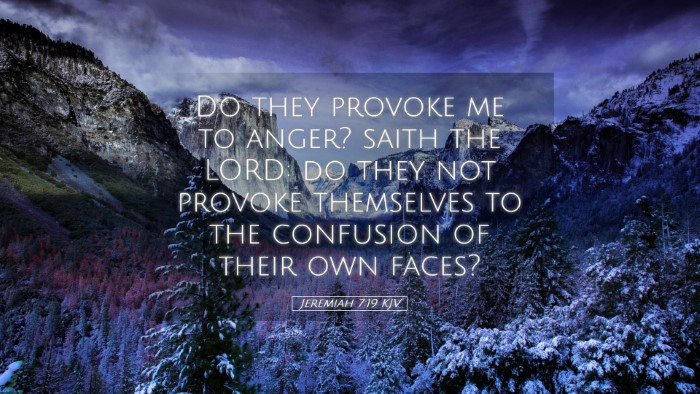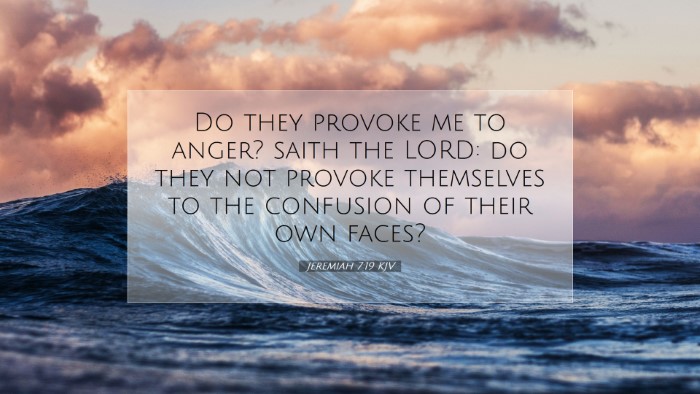Commentary on Jeremiah 7:19
Verse: "Do they not provoke Me to anger?" declares the LORD. "Is it not themselves they provoke to their own shame?" (Jeremiah 7:19, NASB)
Introduction
This verse serves as a critical lens through which we can examine the relationship between divine justice and human action. Jeremiah’s prophecy in this context is a stark call to spiritual introspection and recognition of the consequences of sin. The prophetic message is directed to a faith community that believed they were in a covenant relationship with God while simultaneously engaging in practices that were offensive to Him.
Theological Insights
Jeremiah 7:19 encapsulates the gravity of human actions in relation to God's holy character. The core theme is the divine displeasure provoked by the people's rebellion.
- Provoke to Anger: The phrase “Do they not provoke Me to anger?” indicates an understanding that God is capable of emotional responses. This anthropomorphic expression emphasizes that the sins of the people are not mere transgressions but relational violations that grieve God.
- Self-Provocation: The rhetorical question, “Is it not themselves they provoke to their own shame?” accentuates the folly of sin. It illustrates a profound truth: sin brings about self-inflicted consequences that lead to inherent shame, not just judgment from God.
Commentary from Public Domain Sources
Insights from Matthew Henry, Adam Clarke, and Albert Barnes provide a comprehensive view of the text.
Matthew Henry's Commentary
Henry elucidates that provocation to anger implies a grave disregard for God's holiness, highlighting how God's patience gives way to righteous anger when faced with persistent rebellion. He emphasizes the danger of assuming that outward rituals can substitute true devotion and warns that filling the temple with hypocrisy invites disaster.
Albert Barnes' Notes
Barnes comments on the futility of the people's actions, pointing out that engaging in idolatry while believing they could invoke God's favor was a direct affront to His sovereignty. He underscores that the shame they encounter is a spiraling consequence of their choices, leading them back to a realization of the need for repentance.
Adam Clarke's Exposition
Clarke provides a detailed interpretation of “provoke to their own shame,” elaborating on how self-destructive behaviors result in social and spiritual embarrassment. He emphasizes that true worship is defined not only by ritual but by an authentic relationship with God characterized by obedience and reverence.
Application for Today
This verse holds significant implications for modern believers. It challenges contemporary Christians to assess their own lives and the potential areas where they might inadvertently provoke God through disobedience and apathy.
- Ritual vs. Relationship: It calls us to prioritize genuine faith over mere ritualistic practices. Believers must examine whether their church attendance, sacraments, and community actions reflect a heart aligned with God's desires.
- Consequences of Sin: The verse reminds us that actions have consequences. Today’s church must consider how societal issues reflect the collective behavior of believers whose decisions do not align with God’s commandments.
- Call to Repentance: Both individually and collectively, the church is called to respond to God’s invitation of repentance. Acknowledging our sins openly and seeking restoration is essential to cultivating a vibrant faith community.
Conclusion
Jeremiah 7:19 serves as a powerful reminder that our actions have profound implications not only for ourselves but for our communities. As we reflect on the truths and teachings within this verse, may we heed the warnings contained in the prophetic message and strive to foster a deeper relationship with God, avoiding the prevocation of His anger through disobedience.


